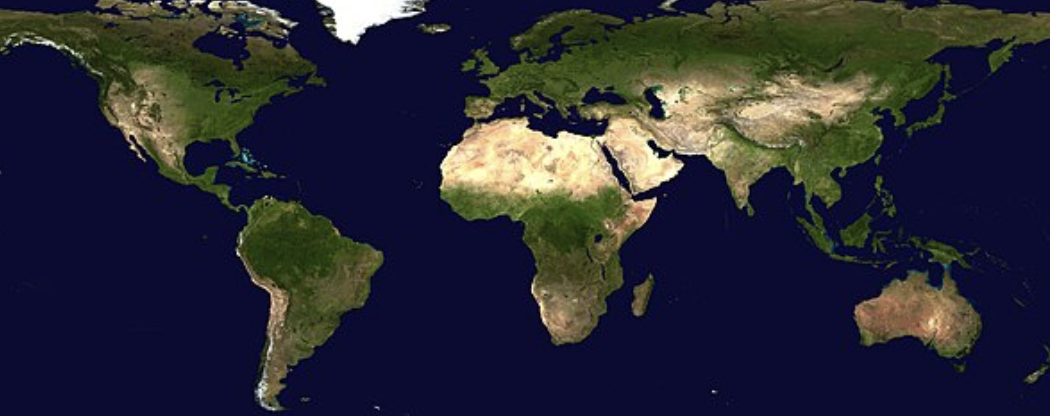Modern-Day Boundaries are the Continuation of Colonial Borders
The legacy of colonial-era borders and structures is profoundly evident in the modern geopolitical landscape, particularly in Africa. The arbitrary borders drawn by European powers during the colonial period often ignored the ethnic, cultural, and historical realities of the regions they divided. These borders, created with little regard for indigenous societies, continue to impact countries and communities today, contributing to ongoing conflicts and instability.
The Legacy of Colonial Borders in Africa
One of the most significant events in the creation of these artificial borders was the Berlin Conference of 1884-1885. During this conference, European powers gathered to divide the African continent among themselves, with little to no consideration of the existing ethnic, linguistic, or cultural divisions among the African people. The result was a patchwork of colonies with borders that often split ethnic groups and combined rival communities into single territories, setting the stage for future conflicts.
The Legacy of Colonial Borders and Indigenous Struggles in the Americas
In the Americas, the legacy of colonial borders profoundly affects contemporary issues, particularly for indigenous populations. The arbitrary boundaries drawn by European powers during the colonial period and the subsequent borders established by emerging nation-states often ignored the complex social, cultural, and territorial realities of indigenous peoples. This oversight has led to ongoing disputes over land rights and resources, with modern encroachments on indigenous lands reflecting the persistent impact of colonial-era decisions.
Colonial and Post-Colonial Borders: A Historical Overview
European colonial powers, including Spain, Portugal, France, and Britain, imposed borders in the Americas with little regard for the indigenous societies they encountered. These borders were often drawn to maximize colonial exploitation of resources and strategic control rather than respecting existing territorial and cultural boundaries. The legacy of these arbitrary lines continues to affect indigenous communities, who find their traditional lands divided by national borders that were established without their consent.
For example, in the early 16th century, the Treaty of Tordesillas divided South America between Spain and Portugal, establishing a line of demarcation that ignored the presence and rights of indigenous peoples. This treaty, which was intended to resolve disputes between the two powers over newly discovered lands, effectively disregarded the established territories of indigenous groups such as the Guarani, the Mapuche, and the Tupi. The imposition of these boundaries led to centuries of displacement and marginalization for these communities.
Ongoing Struggles for Land Rights
In contemporary times, the legacy of colonial borders continues to manifest in disputes over land rights and resource control. One prominent example is the struggle of the Zapatista movement in Mexico. The Zapatista Army of National Liberation (EZLN), led primarily by indigenous Maya communities in the southern state of Chiapas, rose to prominence in 1994 in response to the North American Free Trade Agreement (NAFTA) and its impact on indigenous land rights. The Mexican government’s land policies, inherited from colonial and post-colonial times, had long ignored indigenous land claims, leading to conflicts over land and resources. The Zapatistas’ struggle highlights how colonial-era land decisions have lasting repercussions, affecting indigenous rights and autonomy even in modern contexts.
Similarly, in Canada, the imposition of colonial borders and subsequent federal policies have led to ongoing disputes with indigenous communities. The creation of the Indian Act in 1876, which established reserves and imposed a governance structure on indigenous peoples, has been criticized for its disregard for traditional governance systems and territorial claims. The ongoing land claims and treaty negotiations, such as those involving the Wet’suwet’en Nation and their opposition to pipeline projects on their traditional lands, demonstrate how colonial-era decisions continue to influence contemporary conflicts over land and resources.
Cross-Border Indigenous Communities
Another significant issue is the impact of colonial borders on indigenous communities that span multiple nation-states. The Mapuche people, for example, straddle the border between Chile and Argentina. The imposition of national borders by European powers and later by these nation-states has divided the Mapuche territory, leading to conflicts over land rights and autonomy in both countries. The Mapuche have faced challenges in maintaining their cultural identity and asserting their rights across the national borders that were imposed upon them.
Similarly, the Inuit communities in the Arctic region of Canada, Greenland, and Alaska face challenges related to cross-border resource exploitation and environmental changes. The colonial-era boundaries and the subsequent establishment of national jurisdictions have complicated efforts to manage resources and protect traditional lands from environmental degradation and industrial encroachment.
The Legacy of Colonialism: Moving Forward
The ongoing struggles of indigenous populations in the Americas underscore the need to address the historical injustices wrought by colonial borders. Recognizing the persistent impact of these decisions is crucial for developing equitable solutions. Efforts to resolve land disputes and recognize indigenous sovereignty must involve acknowledging the historical context and respecting the rights of indigenous communities to their traditional territories.
There must be a concerted effort to involve indigenous voices in decision-making processes, ensure the protection of their lands and cultures, and rectify historical injustices. This includes revisiting and revising land policies, supporting self-determination, and fostering dialogue between indigenous communities and national governments. By addressing the deep-seated issues rooted in colonial-era decisions, there is an opportunity to build a more just and inclusive future for indigenous peoples in the Americas.
These borders have significant political, economic, and social ramifications. Politically, the arbitrary borders have often led to governance challenges, with states struggling to manage diverse populations within rigidly defined territories. Economically, the legacy of colonial borders has contributed to uneven development, with some regions benefiting from colonial infrastructure while others remain underdeveloped. Socially, the division of communities has fostered ongoing tensions and conflicts, complicating efforts toward unity and cooperation.
The Legacy of Colonial Borders in Africa and Asia
Colonialism left a profound legacy in the borders drawn across Africa, often leading to divisions of ethnic groups and the forced amalgamation of disparate cultures. These borders, drawn primarily for European convenience, have contributed to post-independence conflicts and socio-political challenges, as African nations continue to navigate the boundaries imposed by former colonial powers. The legacy of colonial-era border decisions is not only evident in Africa but also deeply ingrained in the geopolitical fabric of Asia. The British partition of India in 1947 is a prominent example, but other regions across the continent also reflect the enduring impacts of colonial border-making. These borders, often drawn with little regard for ethnic, cultural, and historical contexts, continue to shape conflicts and tensions in the modern era. The scars of these arbitrary divisions remain visible, as many African and Asian nations grapple with issues of national unity, identity, and territorial disputes.
Redrawing Colonial Borders: Crafting Inclusive and Cohesive Regions
Colonial borders have often divided communities and created conflicts. To address these issues, we must reimagine and redraw borders to better reflect social and cultural realities. However, the ultimate goal is to move towards a world without borders, where people are free to move to any community they choose. This approach is essential for achieving true equality, allowing individuals to live where they feel most connected and ensuring that no one is restricted by arbitrary lines drawn by past colonial powers. A world without borders fosters inclusivity and promotes a global community where all people have the opportunity to thrive and contribute to the collective well-being of humanity.
Reimagining Borders:
- Community-Centric Redrawing: Involve communities in discussions about border adjustments to ensure new boundaries reflect local identities and needs. This participatory approach should consider cultural, social, and ecological factors, aiming for boundaries that facilitate natural and cultural coherence. For example, the creation of regions based on ecological zones or cultural affinities can better align governance with community realities.
- Transboundary Cooperation: Foster cooperation between neighboring communities and nations to manage shared resources and cultural ties effectively. This can lead to the creation of cross-border regions that integrate diverse cultural and ecological aspects while promoting equality and mutual respect. Initiatives like transboundary conservation areas exemplify how collaborative governance can address shared challenges and opportunities.
- Conflict Resolution and Reconciliation: Create forums for dialogue and reconciliation to address historical grievances related to colonial border impositions. These forums should support equitable solutions that reflect the needs and aspirations of all affected communities. Examples include truth and reconciliation processes that aim to heal past injustices while promoting unity and equality.
- Sustainable Development: Ensure that new regional boundaries support sustainable development by considering environmental, social, and economic factors. This approach can help prevent resource conflicts and promote equitable development across newly defined regions. The concept of eco-regions, which align with natural ecosystems rather than political boundaries, offers a framework for sustainable and inclusive development.





